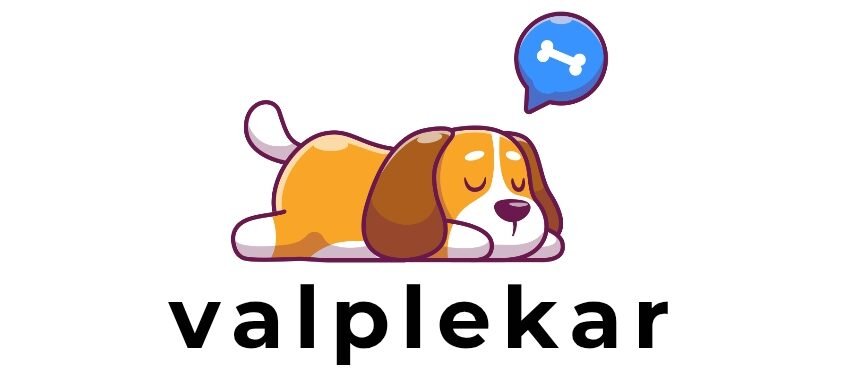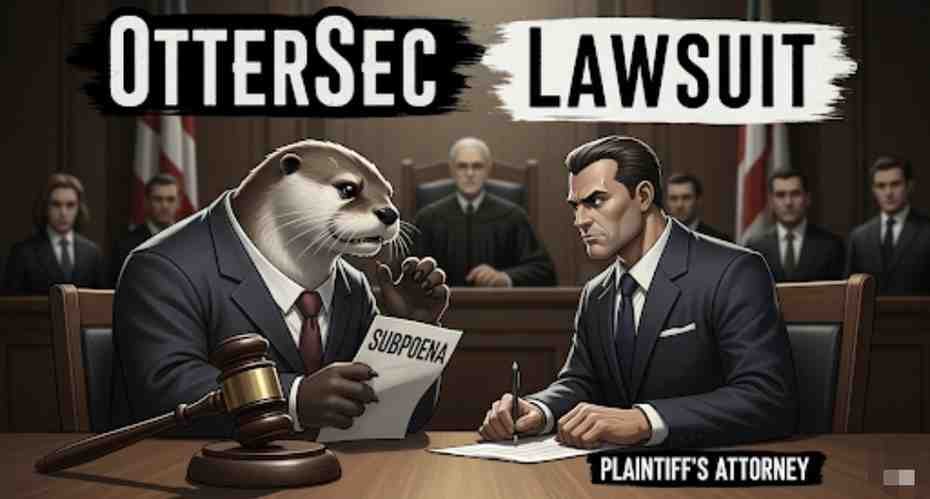The blockchain security industry has been rocked by an ongoing legal drama involving one of its most prominent players. The ottersec lawsuit has sent shockwaves through the cryptocurrency community, highlighting the complex challenges facing this cybersecurity company. What began as internal disputes has escalated into multiple court battles across different jurisdictions, threatening to reshape how Security Firms operate in the digital asset space.
This comprehensive examination reveals the intricate web of legal proceedings that have entangled OtterSec LLC, once a trusted name in blockchain auditing. The implications extend far beyond the immediate parties involved, potentially setting precedents for the entire industry.
Background: Understanding OtterSec’s Role in Blockchain Security
OtterSec emerged as a significant player in the blockchain security landscape, specializing in identifying and addressing security vulnerabilities within decentralized finance protocols. The company built its reputation through rigorous audit processes and comprehensive risk assessments for various cryptocurrency projects.
The firm’s rapid explosive growth attracted attention from major players in the space, including Jump Trading and Jump Crypto, who recognized the critical importance of thorough security auditing in protecting digital assets. Their work involved extensive keyword research and analysis to identify potential threats, making them a go-to choice for projects seeking comprehensive security evaluations.
Before the current legal troubles, OtterSec’s intangible assets included proprietary methodologies, client relationships, and specialized software code designed to detect vulnerabilities that traditional security approaches might miss. The company’s success stemmed from its ability to provide good faith assessments that helped clients avoid costly security breaches.
The Primary Dissolution Lawsuit: Li Fen Yao vs. Robert Chen
The central legal battle began when Li Fen Yao v. Robert Chen emerged in the United States District Court for the D. Maryland. This case, assigned Civil Action TDC number, has become the focal point of a complex dissolution dispute involving OtterSec’s future.
The dispute centers on fundamental disagreements between the co-owner of OtterSec and other key stakeholders. Court documents filed in the District of Maryland reveal allegations of breach of fiduciary duty, with claims that certain parties failed to act in good faith regarding the company’s direction and financial management.
Judge Theodore D. Chuang has overseen much of the proceedings, with Magistrate Judge Kevin P. Crenny handling various procedural matters. The case has involved extensive discovery, with both parties presenting financial information and documentation to support their respective positions.
The filing fee and associated court costs have mounted as the litigation has progressed through various stages. A Court Reporter has documented numerous hearings, creating a Joint Record that captures the complex nature of the disputes. The parties have made multiple Pro Hac Vice applications as out-of-state attorneys have joined the legal teams.
Recent developments include challenges regarding personal jurisdiction, with defendants arguing that the forum state lacks sufficient authority to hear certain claims. The Lack of Personal Jurisdiction motions have added another layer of complexity to an already intricate case.
Internal Conflicts: The David Chen Code Theft Allegations
Parallel to the Maryland proceedings, allegations have emerged regarding David Chen’s father and potential unauthorized access to proprietary software code. These accusations have led to additional legal proceedings in Wyoming District Court, creating a multi-jurisdictional legal maze.
The allegations suggest that valuable trading algorithms and security assessment tools may have been inappropriately accessed or copied. These claims involve not only breach of contract claim elements but also potential violations of intellectual property rights and Lanham Act provisions.
Sam Mingsan Chen and Sam Chen have been named in various court documents, though the exact nature of their involvement continues to be disputed. The Wyoming LLC structure has complicated jurisdictional questions, as parties debate which courts have proper authority to hear different aspects of the case.
The District Court proceedings have revealed tensions regarding ownership interest and membership interest in various related entities, including Otter Audits LLC and RC Security LLC. These disputes highlight the complex corporate structure that existed before the current legal troubles began.
Legal Complexities: Multiple Court Jurisdictions
The ottersec lawsuit has created significant challenges due to its multi-jurisdictional nature. Proceedings in D. Md have been complicated by related cases in other jurisdictions, including Washington state and Wyoming.
The United States Court of Appeals for the Fourth Circuit has been involved in certain procedural appeals, with the 4th Cir reviewing various decisions made by the trial court. The Court of Appeals has addressed questions regarding personal jurisdiction and proper venue for different claims.
Local Rule applications and Civil Cover Sheet filings have been required in multiple jurisdictions, each with its own procedural requirements. The Answer Deadline schedules have varied between courts, creating coordination challenges for legal teams representing the various parties.
FEDERAL RULES OF CIVIL PROCEDURE govern many aspects of the litigation, though state law tort claims have also been raised in certain venues. The ECF No. system has helped track the numerous filings across different courts, though managing the cases has required careful attention to each court’s specific requirements.
Business Impact and Industry Implications
The ongoing litigation has created significant uncertainty for OtterSec’s business operations. Clients who previously relied on the firm’s security assessments have had to evaluate whether to continue their relationships or seek alternative providers.
The potential acquisition of OtterSec has been complicated by the legal proceedings, with interested parties requiring sufficient time to evaluate the legal risks before proceeding with any transactions. This has effectively frozen business development opportunities that might have otherwise materialized.
Jump Trading and other major clients have had to reassess their relationships with the firm, understanding that ongoing legal disputes could impact service delivery and confidentiality of sensitive financial information. The uncertainty has affected the company’s ability to attract new clients and retain existing ones.
Other Security Firms in the space have watched these proceedings carefully, recognizing that the outcomes could establish important precedents for corporate governance and partnership structures within the blockchain security industry.
Financial and Operational Consequences
The dissolution proceedings have raised questions about asset valuation and distribution. Both parties have presented differing views on the company’s worth, including the value of client relationships, proprietary methodologies, and ongoing contracts.
Formation costs and other startup expenses have become relevant to calculating each party’s percent interest in the company’s value. The Amended Operating Agreement has been scrutinized to determine how various scenarios should be handled, though interpretations differ significantly.
Communication accounts and social media accounts have become subjects of dispute, as control over these channels affects the company’s ability to maintain client relationships and market presence. Domain name ownership has also been contested, as digital assets have become increasingly important to business operations.
The company’s operations in North Carolina and other locations have been affected by the uncertainty, with employees and contractors uncertain about their future roles and compensation.
Frequently Asked Questions (FAQ)
What is the OtterSec lawsuit about?
The ottersec lawsuit involves multiple legal disputes centered around company dissolution, allegations of breach of fiduciary duty, and claims of intellectual property theft. The primary case involves disagreements between key stakeholders about the company’s direction and ownership structure.
Who are the main parties in the OtterSec legal disputes?
The main parties include Li Fen Yao, Robert Chen, and various related entities including OtterSec LLC, Otter Audits LLC, and RC Security LLC. Additional individuals including Sam Chen and David Chen have been named in various proceedings.
When did the OtterSec lawsuits begin?
The primary litigation began in 2023-2024, with various proceedings continuing into 2025. Different aspects of the case have been filed in multiple jurisdictions as the legal complexities have evolved.
What courts are handling the OtterSec cases?
The United States District Court for the District of Maryland is handling the primary dissolution case, while the Wyoming District Court is addressing certain related matters. The Fourth Circuit Court of Appeals has been involved in reviewing certain procedural decisions.
How do these lawsuits affect OtterSec’s business operations?
The ongoing litigation has created uncertainty for clients and business partners, potentially affecting the company’s ability to maintain existing relationships and develop new ones. The disputes have also complicated any potential acquisition discussions.
What are the main allegations in the OtterSec lawsuit?
The primary allegations include breach of fiduciary duty, violation of operating agreements, tortious interference, and claims related to improper access to proprietary software code and business information.
Is OtterSec still operating during the lawsuit?
The company’s operational status remains unclear as the litigation continues. The dissolution proceedings and ongoing disputes have created uncertainty about day-to-day operations and future business activities.
What could be the outcome of the OtterSec lawsuit?
Potential outcomes include complete dissolution of the company, restructuring of ownership arrangements, monetary settlements, or other resolutions through mediation or trial court decisions.
Expert Analysis and Industry Perspectives
Legal experts following the case have noted the complexity of applying traditional corporate law principles to blockchain security companies. The unique nature of digital assets and intellectual property in this space creates novel legal questions that existing precedents may not fully address.
The practicing lawyer community has watched these proceedings with interest, as they may establish important precedents for how disputes within blockchain companies are resolved. The case has highlighted the importance of clear operating agreements and well-defined ownership structures.
Industry analysts suggest that the outcome could influence how Security Firms structure their partnerships and protect their intellectual property. The case has already prompted some companies to review their own operating agreements and corporate governance structures.
The Supreme Court has not yet been involved in these proceedings, though certain legal questions may eventually require higher court review if the current litigation continues to evolve.
Current Status and Recent Developments
Recent court filings have included various motions related to personal jurisdiction and venue. The Defendant’s Motion to dismiss certain claims has been pending, while other procedural matters continue to work their way through the court system.
The Court of Appeals of Maryland has been monitoring certain aspects of the case, though most proceedings remain at the District Court level. Both federal and state courts have been involved in different aspects of the litigation.
Keyword matches in recent filings suggest that new evidence and arguments continue to be presented by both sides. The relevant case law continues to evolve as courts address novel questions related to blockchain company dissolution and digital asset ownership.
Future Outlook and Predictions
The resolution of the ottersec lawsuit will likely have significant implications for the broader blockchain security industry. Companies in similar situations will be watching carefully to understand how courts handle these types of disputes.
The case may establish important precedents regarding personal jurisdiction in cases involving multi-state blockchain companies. The resolution could also clarify how intellectual property rights are protected in the rapidly evolving cryptocurrency space.
Future regulatory developments may be influenced by the outcomes, as regulators seek to understand how existing legal frameworks apply to blockchain companies and their unique operational structures.
Conclusion
The ottersec lawsuit represents a significant challenge for the blockchain security industry, highlighting the complex legal issues that can arise when innovative technology companies face internal disputes. The case demonstrates the importance of clear corporate governance structures and well-defined partnership agreements in the rapidly evolving digital asset space.
The proceedings in the District Court for the District of Maryland and other jurisdictions will likely establish important precedents for how similar disputes are resolved in the future. The outcome will have implications extending far beyond the immediate parties involved, potentially affecting how Security Firms structure their operations and protect their intellectual property.
As the blockchain industry continues to mature, cases like this serve as important learning opportunities for companies seeking to avoid similar legal complications. The resolution of these disputes will provide valuable guidance for the entire cryptocurrency ecosystem as it continues to develop and evolve.
The legal complexities revealed through this litigation underscore the need for careful planning and clear agreements when establishing partnerships in the blockchain space. Whether through settlement or trial court decisions, the ultimate resolution will contribute to the growing body of precedent governing this important and rapidly developing industry.



